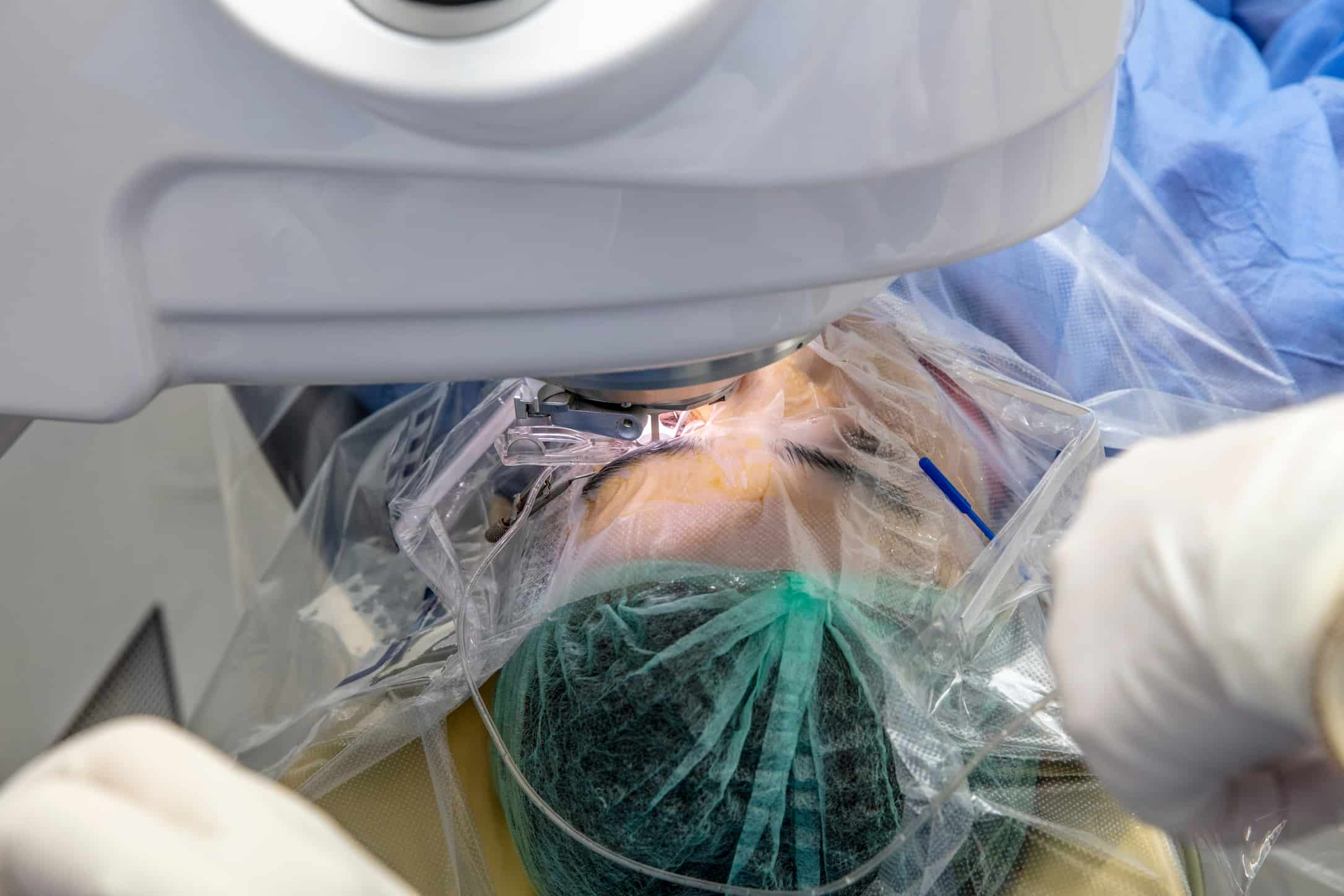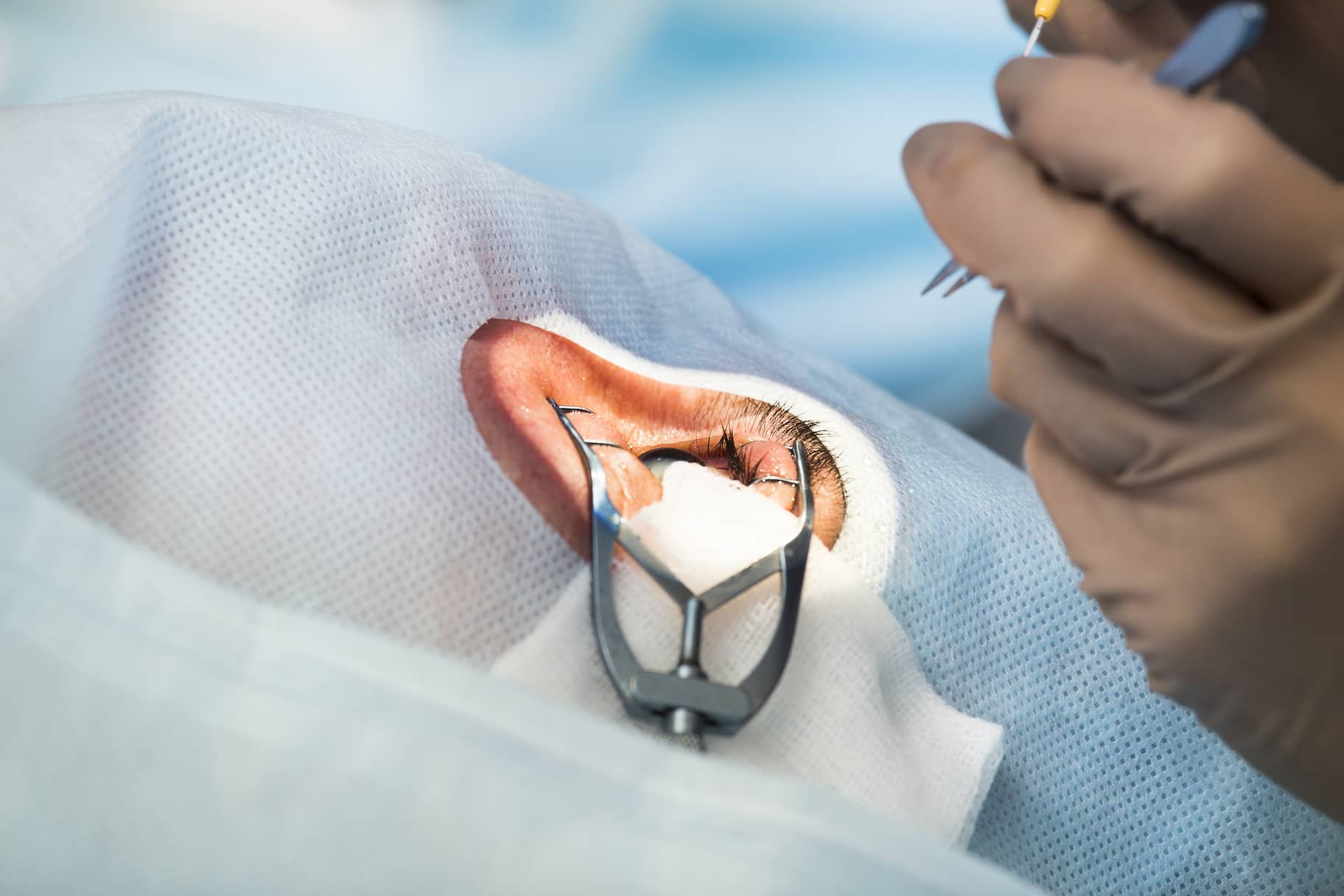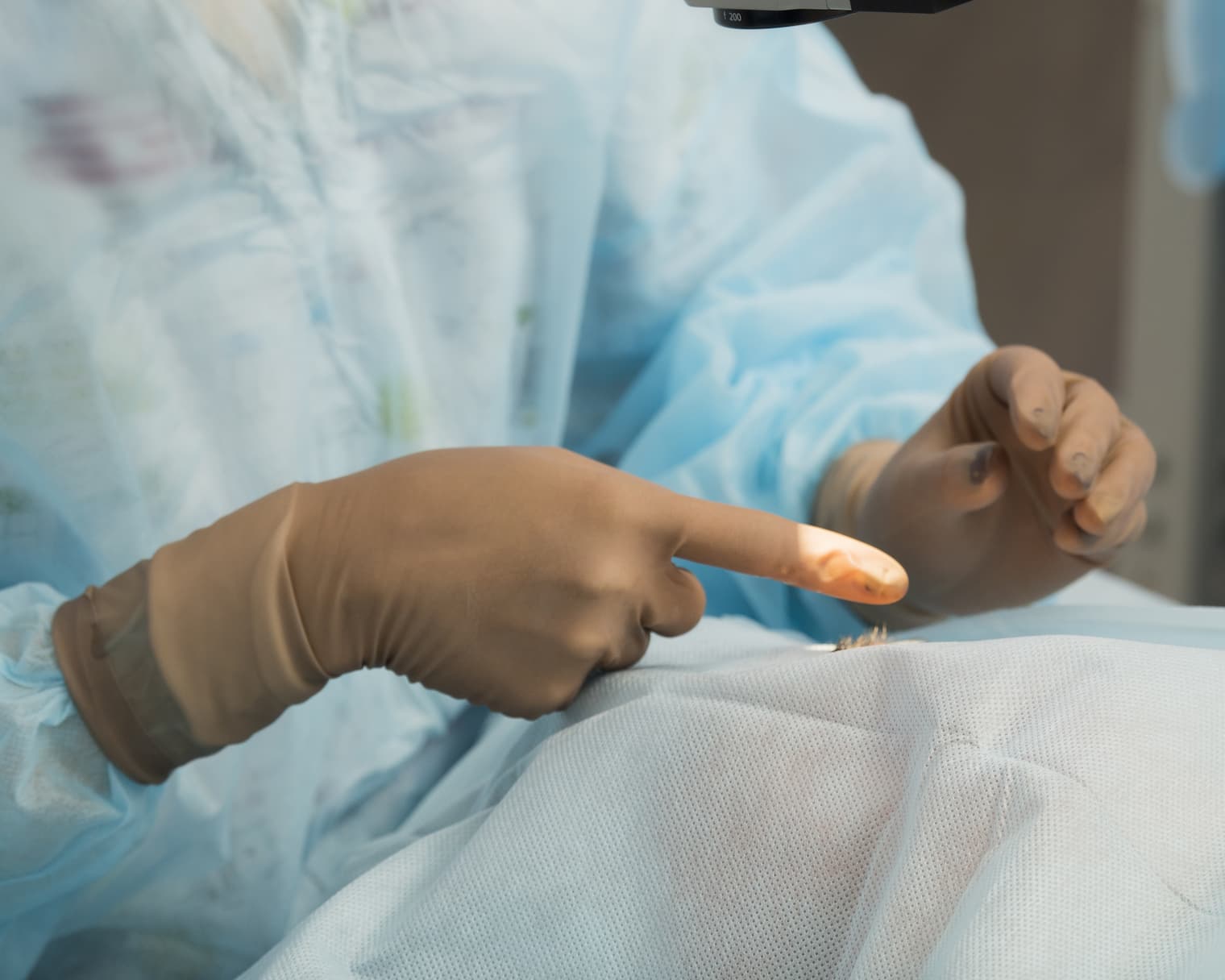Phacoemulsification Surgery in Turkey
Healthy Türkiye helps you find the best phacoemulsification surgery in Turkey at affordable prices and adopts a 360-degree service approach in all areas of health through affiliated hospitals.
- Medical Treatment
- Eye Surgery in Turkey
- Corneal Transplant in Turkey
- Lasik Eye Surgery in Turkey
- Retinal Detachment Treatment in Turkey
- Cataract Surgery in Turkey
- Astigmatism Treatment in Turkey
- Oculofacial Plastic Surgery in Turkey
- Ptosis Treatment in Turkey
- SBK Surgery in Turkey
- Dermatofibromas Removal in Turkey
- Glaucoma Surgery in Turkey
- Ocular Prosthesis in Turkey
- Retinoblastoma Treatment in Turkey
- Uveitis Treatment in Turkey
- Vitrectomy in Turkey
- Eye Muscle Surgery in Turkey
- PRK Surgery in Turkey
- Phacoemulsification Surgery in Turkey
- Pneumatic Retinopexy Surgery in Turkey
- Presbyopia Treatment in Turkey
- Refractive Surgery in Turkey
- Scleral Buckling Surgery in Turkey
- Strabismus Surgery in Turkey
- Extracapsular Cataract Extraction Surgery in Turkey
- Squint Surgery in Turkey
- Excimer Laser Surgery in Turkey
- LASEK Surgery in Turkey
- Homepage
- Medical Treatment
- Phacoemulsification Surgery in Turkey

About Phacoemulsification Surgery in Turkey
Phacoemulsification surgery in Turkey is a procedure to remove a cataract from the lens in the eye. Cataracts are cloudy parts in the eye’s lens and phacoemulsification applies ultrasound to remove them, as well as to remove the front part of the lens capsule. Generally, an intraocular lens will be implanted in order to compensate for the removal of the natural lens.
If your eye specialist has mentioned that you need phacoemulsification or “phaco”, chances are you have been diagnosed with cataracts. Phacoemulsification is defined as the emulsification or liquefaction of the natural lens of the eye, and is derived from the Greek word for the lens, “phakos”. Phacoemulsification surgery in Turkey is the latest cataract surgery technique that involves state-of-the-art technology and makes cataract surgery a safe and effective surgical procedure.
Phacoemulsification was first introduced by Kelman in 1967 and revolutionized the management of cataracts and visual rehabilitation in the years to come. The methods and results of cataract surgery have undergone a sea change during the past few decades, with smaller incisions and foldable lenses being implanted through them becoming more the norm than the exception.
In fact, most of the cataract surgeries performed in Turkey today, use phacoemulsification surgery with excellent visual outcomes, patient safety, and efficacy.

Phacoemulsification Surgery Procedure in Turkey
Phacoemulsification cataract surgery in Turkey is a procedure in which an ultrasonic device is used to break up and then remove a cloudy lens, or cataract, from the eye to improve vision. The insertion of an intraocular lens (IOL) often immediately follows phacoemulsification.
Phacoemulsification, or phaco, as eye specialists refer to it, is applied to restore vision in patients whose vision has become cloudy from cataracts. In the first stages of a cataract, patients might notice only slight cloudiness as it affects only a small part of the lens, the part of the eye that focuses light on the retina. More light is blocked when the cataract enlarges, causing vision to become cloudier. As vision worsens, the eye specialist will recommend phacoemulsification surgery, usually phaco, to restore clear vision. With advancements in cataract surgery such as the IOL patients can sometimes experience effective vision improvement.
Good Candidate for Phacoemulsification Surgery in Turkey
Most cataract surgery patients today are candidates for phacoemulsification surgery, but you will need to consult with your eye specialist at Healthy Türkiye in order to know for sure. Here are two reasons a patient might not be a candidate for phacoemulsification:
Hard cataracts: In the past, eye specialists would perform non-phaco surgery on patients with hard (extremely advanced) cataracts. But phacoemulsification technology has evolved, and many people with hard cataracts are now candidates for phaco.
Weak zonules: In a person with “loose” or “weak zonules,” the lens does not have enough support in the eye. This weakness might be caused by eye disease or trauma and can make cataract surgery more challenging overall. People who have loose zonules might not be candidates for phaco and might need to have extracapsular cataract extraction instead.
Prepare for Phacoemulsification Surgery in Turkey
Phacoemulsification surgery in Turkey is an increasingly common procedure performed in the operating room with sterile curtains, gowns, and gloves. It often takes 10 to 20 minutes to complete, not including recovery time. Phacoemulsification surgery is performed on an outpatient basis. Depending on your age, the severity of your cataracts, and other factors, one or more anesthetics might be applied to lessen pain and discomfort. Options involve:
Applying lidocaine or another topical anesthetic to the eye (most common)
Anesthetic eye blocks are injected into the eye, such as Marcaine (bupivacaine).
Marcaine and lidocaine facial nerve blocks to stop eyelid movement
General anesthesia for children, patients with traumatic eye injuries, or those who are distressed
Once the anesthesia is delivered and begins to take effect, you are laid on a plastic-covered operating table, and your eyelid is held open with equipment known as an eye speculum.
During Phacoemulsification Surgery in Turkey
Phacoemulsification surgery in Turkey is carried out in a sterile operating theatre. Before the operation, you’ll be given drops to dilate the pupils to get a clear view of the cataract. Your eye is then anaesthetized using eye drops and sometimes with an additional local anaesthetic injection around the eye. A very small group of patients needs a general anaesthetic.
Your eye and the surrounding site will then be cleaned with antiseptic fluid. In order to block infection, your face will then be covered with a sterile sheet so that only the eye being operated on is exposed. Once your eye is numb, your ophthalmologist will begin the phacoemulsification surgery. Throughout the operation, someone will be holding your hand to keep you comfortable.
Your specialist will make some very small cuts through the cornea, which allow them to introduce instruments through your dilated pupil to reach your lens. During the operation, you might be able to see movement and a change in lights or shadows, but it is unlikely that you will be able to see any detail of what’s happening. You will also hear the noise made by the ultrasound device.
Your eye’s lens is composed of several layers, the outermost of which is referred to as the lens capsule. During the phacoemulsification surgery in Turkey, the ophthalmologist makes a circular opening through the front of the lens capsule so that they can reach the lens inside. Using the same instrument, the specialist can break up your cloudy lens and remove it using suction. The prosthetic lens implant is inserted inside your lens capsule, which is retained in position. The small implant is folded so that it can be put into your eye through the same small incision that has been used to remove your cataract. The lens capsule holds the lens in place as it unfolds inside the eye. These tiny incisions are self-sealing and generally do not need suturing.
At the end of the phacoemulsification surgery in Turkey, your eye might be covered with a shield to keep it clean and for protection. Then, once your specialist team is happy with your eye, you will be able to go home. You’ll be prescribed anti-inflammatory and antibiotic eye drops.
Recovery from Phacoemulsification Surgery in Turkey
After the phacoemulsification surgery in Turkey, you’ll be wheeled to a recovery room and monitored until the effects of the anesthesia have worn off (usually within 30 minutes). Once you are given the OK to leave by the specialist, a friend or family member should drive you home as your vision will likely be cloudy for a while. If there is no one to take you home, you can take advantage of the personal assistant service offered by Healthy Türkiye.
When you get home, relax and get as much rest as you can. If you see popped blood vessels or bruising around your eye, rest assured that these side effects are usual and should fade within a few days.
After you’re rested, you can take a shower or bath, work on the computer, and occasionally watch TV. You should avoid swimming pools and hot tubs for at least a week. In order to avoid getting any grease, aerosolized oils, or splatters in your eyes, you should also refrain from cooking during that period.
For the next few weeks, you should avoid any activities that can get dust, dirt, or grit in your eyes (such as mowing the lawn). If you have to go out on a windy day, put on eyewear that covers as much of the eye as possible, involving the sides.
If your specialist prescribed antibiotic eye drops, take them to completion even if your vision is good and your eyes seem perfectly normal. Most antibiotic eye drops are prescribed by specialists for seven to 10 days.
Advantages of Phacoemulsification Surgery
Phacoemulsification surgery has fast become established as the gold standard for cataract surgery for the following reasons:
Visual rehabilitation is, of course, the most significant benefit. The IOL placed in the eye compensates for the earlier refractive error, and patients can opt to use special lenses that can correct for near and farsightedness (multifocal lenses), astigmatism, and distance alone (monofocal lenses) (toric lenses).
Small incisions usually do not necessity stitches or sutures.
Better vision consequences in more confidence, better mobility, and
Another psychological impact is the enormous relief from the fear of blindness.
Most people report a feeling of bright and clear vision, knowing that their worries were hitherto irrational. Since the surgical downtime is not significant, most patients find it easy to resume their usual activities within two to three days of the operation, including TV watching, reading, and resuming official duties also.
How Successful Is Phacoemulsification Surgery in Turkey?
Phacoemulsification surgery in Turkey success rate is around 87-93%. This is very good but still means that 10-15% of operations can have complications, which might arise during the operation or at a later date. Importantly, in some breeds, for presumed genetic reasons, the risks of complications are higher (these breeds include the Labrador, Boston terrier, and other brachycephalic breeds). Some complications can be successfully treated by long-term eye medicine but in a few cases permanent blindness can occur, and in very rare instances, enucleation (removal of the eye) might be necessary.
The most serious complications involve bleeding into the eye, inflammation and eye pain, retinal detachment, and glaucoma. Generally, however, the cataract surgery is successful and a good degree of vision is restored, which greatly improves the quality of life of the patient. Also, remember that without treatment, the eye will remain blind and may also develop serious and painful problems such as inflammation and glaucoma, which might preclude surgery at a later date.
Alternatives Treatment Options for Cataract
Some older methods of cataract surgery might have to be used if the cataract is too large to remove with a small incision, including:
Extracapsular cataract extraction: While phaco is considered a type of extracapsular extraction, the older version of this technique requires a much larger incision and does not use the phaco device. It is similar in that the lens and the front portion of the capsule are extracted, and the back part of the capsule remains. The specialist may consider this technique if the patient has corneal disease or if the pupil becomes too small during the first stages of surgery.
Intracapsular cataract extraction: This also needs a larger incision than phaco. It differs in that the lens and the entire capsule are removed. While it is the easiest cataract surgery for the surgeon technically, this technique carries an increased risk for the patient with increased potential for detachment of the retina and swelling after the operation. Recovery is long, and most patients might use large “cataract glasses” to see.

We Care About Your Health
Healthy Türkiye provides the best for your health and comfort. You will feel privileged with us.
7/24 Quality Personal Assistance Throughout Your Journey
Customizable for You All-Inclusive Packages
Get the Right Advice for your Health
2026 Cost of Phacoemulsification Surgery in Turkey
All types of medical attention, like phacoemulsification surgery, are very affordable in Turkey. Many factors are also included in determining the cost of phacoemulsification surgery in Turkey. Your process with Healthy Türkiye will last from the time you decide to have phacoemulsification surgery in Turkey until the time you are fully recovered, even if you are back home. The exact phacoemulsification surgery procedure in Turkey depends on the type of operation involved.
The cost of phacoemulsification surgery in Turkey does not demonstrate many variations in 2026. Compared to costs in developed countries like the United States or the UK, phacoemulsification surgery costs in Turkey are relatively low. So, it’s no wonder patients from across the world visit Turkey for phacoemulsification surgery procedures. However, price is not the only factor affecting choices. We suggest looking for hospitals that are safe and have phacoemulsification surgery reviews on Google. When people decide to seek medical help for phacoemulsification surgery, they will not only have had low-cost procedures in Turkey, but also the safest and best treatment.
At clinics or hospitals contracted with Healthy Türkiye, patients will receive the best phacoemulsification surgery from specialist doctors in Turkey at affordable rates. Healthy Türkiye teams to provide medical attention phacoemulsification surgery procedures and high-quality treatment to patients at a minimum cost. When you contact Healthy Türkiye assistants, you can get free information about the cost of phacoemulsification surgery in Turkey and what this cost covers.
Why Is Phacoemulsification Surgery Cheaper in Turkey?
One of the main considerations before traveling abroad for phacoemulsification surgery is the cost-effectiveness of the whole process. Many patients think that when they add flight tickets and hotel expenses to their phacoemulsification surgery costs, it will become very expensive to travel, which is not true. Contrary to popular belief, round-trip flight tickets to Turkey for phacoemulsification surgery can be booked very affordably.
In this case, assuming you are staying in Turkey for your phacoemulsification surgery, your total travel expense of flight tickets and accommodation will only cost less than any other developed country, which is nothing compared to the amount that you are saving. The question “Why is phacoemulsification surgery cheaper in Turkey?” is so common among patients or people simply curious about getting their medical treatment in Turkey. When it comes to phacoemulsification surgery prices in Turkey, there are 3 factors allowing cheaper prices:
The currency exchange is favorable for whoever looking for phacoemulsification surgery has a euro, dollar, or pound;
The lower cost of living and cheaper overall medical expenses such as phacoemulsification surgery;
For phacoemulsification surgery, incentives are given by the Turkish Government to medical clinics working with international clients; All these factors allow for cheaper phacoemulsification surgery prices, but let’s be clear, these prices are cheaper for people with strong currencies (as we said, euro, dollar, Canadian dollar, pound, etc).
Every year, thousands of patients from all over the world come to Turkey to get phacoemulsification surgery. The success of the healthcare system has increased in recent years, especially for phacoemulsification surgery. It’s easy to find well-educated and English-speaking medical professionals in Turkey for all kinds of medical treatment, such as phacoemulsification surgery.

Why Choose Turkey for Phacoemulsification Surgery?
Turkey is a common choice among international patients seeking advanced phacoemulsification surgery. Turkey’s health procedures are safe and effective operations with a high success rate like phacoemulsification surgery. The increasing demand for high-quality phacoemulsification surgery at affordable prices has made Turkey a popular medical travel destination. In Turkey, phacoemulsification surgery is performed by highly experienced and trained doctors with the most advanced technology in the world. Phacoemulsification surgery is done in Istanbul, Ankara, Antalya, and other major cities. The reasons for choosing phacoemulsification surgery in Turkey are as follows:
High-quality hospitals: Joint Commission International (JCI) accredited hospitals have dedicated phacoemulsification surgery units that are specially designed for patients. International and national strict protocols provide effective and successful phacoemulsification surgery for patients in Turkey.
Qualified experts: The expert teams include nurses and specialist doctors, together to carry out phacoemulsification surgery according to the patient’s needs. All the included doctors are highly experienced in performing phacoemulsification surgery.
Affordable price: The cost of phacoemulsification surgery in Turkey is affordable compared to Europe, the USA, the UK, Singapore, Australia, etc.
The high success rate: Highly experienced specialists, the best available technology, and stringently followed safety guidelines for post-operative care of the patient, resulting in a high success rate for phacoemulsification surgery in Turkey.
Is Phacoemulsification Surgery Safe in Turkey?
Did you know Turkey is one of the most visited destinations for phacoemulsification surgery in the world? It is ranked as one of the most popular tourist destinations for phacoemulsification surgery. Over the years, it has also come to be a very popular medical tourism destination, with many tourists coming in for phacoemulsification surgery. There are so many reasons why Turkey stands out as a leading destination for phacoemulsification surgery. Because Turkey is both safe and easy to travel to, with a regional airport hub and flight connections to pretty much everywhere, it is preferred for phacoemulsification surgery.
The best hospitals in Turkey have experienced medical staff and specialists who have performed thousands of medical services, such as phacoemulsification surgery. All procedures and coordination related to phacoemulsification surgery are controlled by the Ministry of Health in accordance with the law. Over many years, the greatest progress in medicine has been observed in the field of phacoemulsification surgery. Turkey is known among foreign patients for its great opportunities in the area of phacoemulsification surgery.
To emphasize, besides the price itself, the key factor in selecting a destination for phacoemulsification surgery is certainly the standard of medical services, the hospital staff’s high level of expertise, hospitality, and safety of the country.
All-Inclusive Packages for Phacoemulsification Surgery in Turkey
Healthy Türkiye offers all-inclusive packages for phacoemulsification surgery in Turkey at much lower prices. Extremely professional and experienced doctors and technicians carry out high-quality phacoemulsification surgery. The cost of phacoemulsification surgery in European countries can be quite expensive, especially in the UK. Healthy Türkiye provides cheap all-inclusive packages for a long and short stay of phacoemulsification surgery in Turkey. Because of many factors, we can provide you with many opportunities for your phacoemulsification surgery in Turkey.
The price of phacoemulsification surgery differs from other countries due to medical fees, staff labor prices, exchange rates, and market competition. You can save much more in phacoemulsification surgery compared to other countries in Turkey. When you purchase phacoemulsification surgery all-inclusive packages with Healthy Türkiye, our healthcare team will present hotels for you to choose from. In phacoemulsification surgery travel, the price of your stay will be included in the all-inclusive package cost.
In Turkey, when you purchase phacoemulsification surgery all-inclusive packages through Healthy Türkiye, you will always receive VIP transfers. These are provided by Healthy Türkiye, which has contracted with highly qualified hospitals for phacoemulsification surgery in Turkey. Healthy Türkiye teams will organize everything about phacoemulsification surgery for you and have you picked up from the airport and safely brought to your accommodation. Once settled in the hotel, you will be transferred to and from the clinic or hospital for phacoemulsification surgery. After your phacoemulsification surgery has been successfully completed, the transfer team will return you to the airport in time for your flight home. In Turkey, all packages of phacoemulsification surgery can be arranged upon request, which relaxes the minds of our patients. You can reach out Healthy Türkiye for everything you need to know about phacoemulsification surgery in Turkey.
The Best Hospitals in Turkey for Phacoemulsification Surgery
The best hospitals in Turkey for phacoemulsification surgery are Healthy Türkiye, Memorial Hospital, Acıbadem International Hospital, and Medicalpark Hospital. These hospitals attract patients from all over the world seeking phacoemulsification surgery due to their affordable prices and high success rates.
Best Doctors and Surgeons in Turkey for Phacoemulsification Surgery
The best doctors and surgeons in Turkey for phacoemulsification surgery are highly skilled professionals who offer specialized care and advanced procedures. With their expertise and state-of-the-art techniques, these specialists ensure that patients receive high-quality phacoemulsification surgery and achieve optimal health results.

Frequently Asked Questions
Initially, when the cataract is not very dense, you’ll notice the cloudy vision. In addition, lights might cause more glare than normal. As the cataract develops, vision becomes more blurred, making it gradually harder to perform daily activities.
With phacoemulsification surgery, the most common type of cataract surgery performed in Turkey, the procedure can take as little as 10 minutes.
These side effects generally improve within a few days, but it can take 3 to 6 weeks to recover fully. If you need new glasses, you won’t be able to order them until your eye has completely healed, often after 6 weeks.
Don’t bend over or do any strenuous activities, such as biking, jogging, weight lifting, or aerobic exercise, for 2 weeks or until your specialist says it is okay. You should avoid swimming, hot tubs, gardening, and dusting for 1 to 2 weeks. You should also wear sunglasses on bright days for at least 1 year after phacoemulsification surgery.
You must keep water, soap, shampoo, hair spray, and shaving lotion out of your eyes, especially for the first week. Don’t rub or put pressure on your eye for at least 1 week. You should not wear eye makeup for 1 to 2 weeks. You might also want to avoid using face cream or lotion.
Exposure to water can put your eyes at risk of infection or irritation until your eye has healed from phacoemulsification surgery.
Displacement of the intraocular lens causes changes to vision, and, if it falls into the vitreous cavity, it might produce traction due to the eye’s own movement, resulting in retinal detachment and/or vitreous hemorrhage.
